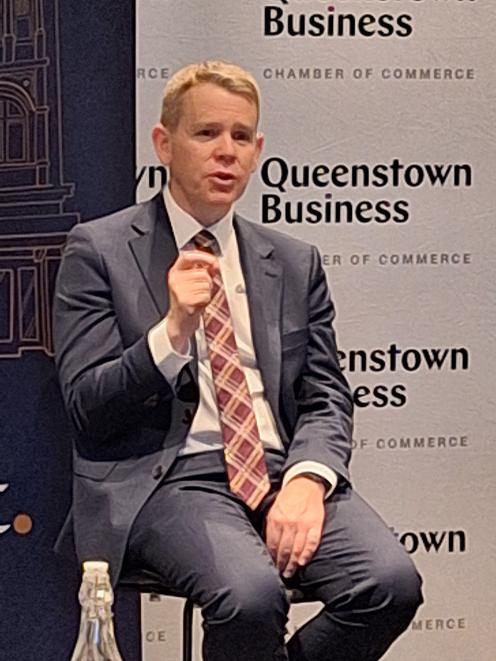
How long has it been since a political party gave the future a first thought? Second thoughts are a dime-a-dozen in politics, but setting a firm priority, that’s a lot rarer. If nothing else, "Future Fund" is guaranteed to capture the voters’ attention.
And it just gets better. According to Labour (the party that’s just launched this brand-new policy) the Future Fund is intended to ensure that the job of securing New Zealand’s prosperity in the decades that lie ahead will be undertaken "by us, for us".
The plan calls for the people’s assets to be deployed financially in the service of our inventors, innovators and entrepreneurs. Clearly, Chris Hipkins and his colleagues have been reading Abundance, the text du jour by Ezra Klein and Derek Thompson.
Welcome to the politics of "Yes".
But the problem with snappy titles is that they remind me of other snappy titles. As I digested the news of Labour’s first big policy release of election year, my memory was well and truly jogged.
What was the name of that other big policy announcement? You must remember it. A big promise to deliver what had been withheld from young New Zealanders for far too long — affordable housing.
What was it called? KiwiBuild! ... long pause ... KiwiBuild.
Yeah.
KiwiBuild wasn’t a carefully considered policy. There weren’t years of research and discussion behind its promise to construct 100,000 (yep, that’s right, one hundred thousand) affordable houses for young, first-home buyers.
The whole doomed scheme was dreamt up by a clutch of existing politicians and former journalists as a way of turning David Shearer into a better bet than David Cunliffe.
I am reliably informed that the number of affordable houses was originally projected to be a more modest (but equally unrealistic) 50,000.
Not good enough, apparently. Insufficient cut-through. The number on the back of the envelope was instantly doubled.
The Labour Party conference, in whose shadow the policy had been cobbled together, roared their approval — which was the whole point.
Did young New Zealanders desperate to buy their first home get their 100,000 affordable houses? Ummmm? No. Not really.
Labour, now led by David Cunliffe, ran on the policy in 2014 and received less than 25% of the party vote. Jacinda Ardern ran on it again in 2017 and thanks to Winston Peters was given the chance to keep her KiwiBuild promises.
By the time Labour was voted out of office in 2023, however, KiwiBuild had managed to complete just 2229 dwellings — a whole 97,771 short.
But, come on, be fair, it was an election promise. Piecrust.
Will the promised Future Fund be any different? Probably not.
When the prime minister dismissed the policy as a collection of "buzz words and jargon" he was not only displaying an extraordinary lack of self-awareness (has Christopher Luxon ever communicated in anything other than buzz-words and jargon?) but he was also speaking the truth.
To say that the policy is a little light on detail seriously undervalues the words "little", "light" and "detail".
In terms of its seed capital ($200 million) the fund is woefully under-resourced. Even worse, the money required to capitalise the whole venture will be money either borrowed from offshore lenders or taken out of other votes — like Health and Education.
As the director of the Integrity Institute, Dr Bryce Edwards, put it: "In essence, it’s a shell game. Now you see it, now you don’t."
And you won’t see it until after the election — not according to Labour’s shadow finance minister Barbara Edmond. Until then, we’ll all just have to conjure-up our own ideas of what Labour’s Future Fund might do.
Those of us who regularly buy Lotto tickets have plenty of practice at this. If we’d constructed KiwiBuild houses as easily as we build castles in the air, then meeting Labour’s 100,000 target would have been the work of an afternoon.
Had Labour announced its intention to make KiwiSaver compulsory, lifted the contributions of employers and workers to 10%, and assigned the responsibility for managing the additional funds to a new state agency, then its promises to close New Zealand’s infrastructure deficit would have been a lot more convincing.
"By us, for us" might even have become a winning election slogan.
Future success is funded by present courage.
■ Chris Trotter is an Auckland writer and commentator.












